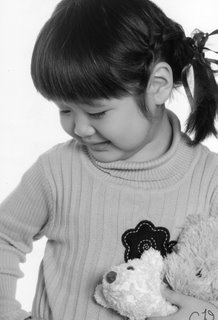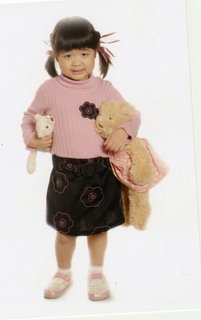Confinement nannies among the Chinese
No shower or washing of hair for a month. Forget about going out, shopping or meeting friends.
And the only thing to touch your lips, is food cooked in sesame oil or ginger.
If you want a drink, don't reach for a glass of water. This is what confinement means for the Chinese mother.
Chan Mui Yin recounts, "After delivery for the first one month, I actually feel very tired and actually pretty weak. If you stay up late, you get a little bit of headache. Especially looking after the baby in the night, and the next morning when the baby does not sleep very well.
"Traditionally, the confinement period is a time of rest for the mother.For Miu Yin, she decided she needed extra help so she hired a "Pei Yuet" or confinement nanny.
The Pei Yuet's job is to care for the mother and baby for about a month after the child is delivered.
Chan Mui Yin explains, "If you actually look at it in Mandarin terms, Pei Yuet actually means "company during one month". Yuet actually means one month. What really that means is that she will take care of the mother and she will take care of the baby. "So that the mother will get a lot of rest. On top of it, she prepares a special diet for the mother. And some of this food, generally are not basic home-cooked food. It needs special preparation." For the first two weeks of confinement, the new mother is not encouraged to take anything too nourishing. The main concern is to rid the mother's body of "fong" or wind.It is said to be caused by toxins and impurities found in the body.
Chan Mui Yin says, "Throughout the confinement period, basically no plain water at all. I will be taking the red date and longan water. "All the food I take, whether vegetable, fish, meat or even chicken, are fried with ginger. A lot of ginger is actually put in. Ginger, then there is a lot of sesame oil. I feel all of the practices that have been passed down, all of the advice that they have given you are usually for a good reason.
"According to the Chinese, pregnancy is considered to be a hot condition, while childbirth means loosing the heat. That explains the taboo of touching water which is cold after birth and having the red dates drink, which warms the body.
Food taken during this first two weeks is usually "sheng hua tang", or herbal soup.It will literally "cleanse the body after birth", with the area the soups targeting to clean out being the uterus. Usually the Pei Yuet would have her own concoctions, like Miu Yin's aunt who has her special family remedies. Tjong Sui En shares her secret recipe, "Mix juice of tumeric, betel leaves, ginger and galangal. Tumeric will be good for blood circulation - the body will not be tired - the betel leaves make sure that the body does not smell."Following this, the mother would then be allowed to take other energy giving food such as steamed black chicken, pig's liver and kidney.
Chinese remedies have a well-documented history and today it still continues to influence life, especially new life.
- extracted from www.channelnewsasia.com/baby/chinese.htm
================================================================================================================
Article 2 :
Information on Confinement Practices
Many women throughout Asia believe strongly and adhere to cultural postpartum practices. This is apparent in some degree in Singapore. The Singaporean new mother may be modern, but traditional customs and beliefs still hold sway in the postpartum period. The information given here below pertains to local Chinese practices that dominate during this period.
In general, the postpartum period coincides with the duration of confinement. Here, women are expected to follow a set of prohibitions and restrictions concerning diet and lifestyle. It is believed that women reach an imbalanced state of being after childbirth. Yin and Yang are not in harmony and cultural taboos and practices are set in place to restore their balance.
The theory of Yin and Yang is briefly mentioned here. Traditional Chinese beliefs hold the theory of Yin and Yang to be basic and fundamental. The Yin-Yang theory holds that all phenomena consist of two opposite aspects that are in continual mutual interaction, Yin and Yang. Yin and Yang are opposing forces, yet remaining in interdependence. Yin is seen as passive, dark, descending, feminine, cold and negative whilst yang is light, active, ascending, masculine, warm and positive. Each organ in the body has Yin and Yang within it and the balance of Yin and Yang is maintained throughout the body.
After giving birth, women are considered to be extremely imbalanced towards Yin. This is considered a 'cold' stage and comes about due to the loss of blood and energy. In order to re-establish balance between yin and yang, there is therefore a strong emphasis on keeping and building warmth in the body and avoiding exposure to cold elements. The new mothers should not expose themselves to cold water and low temperatures, avoid the wind and air conditioning, abstain from drinking ice water and eating 'cold' food. Strict followers would avoid washing hair totally, take occasional baths and eat 'warming' food. Generally, the wisdom passed down is this, "If you don't listen and follow, then you will have backache, arthritis, rheumatism and incontinence when you are old."
- extracted from http://www.littledreamers.com.sg












